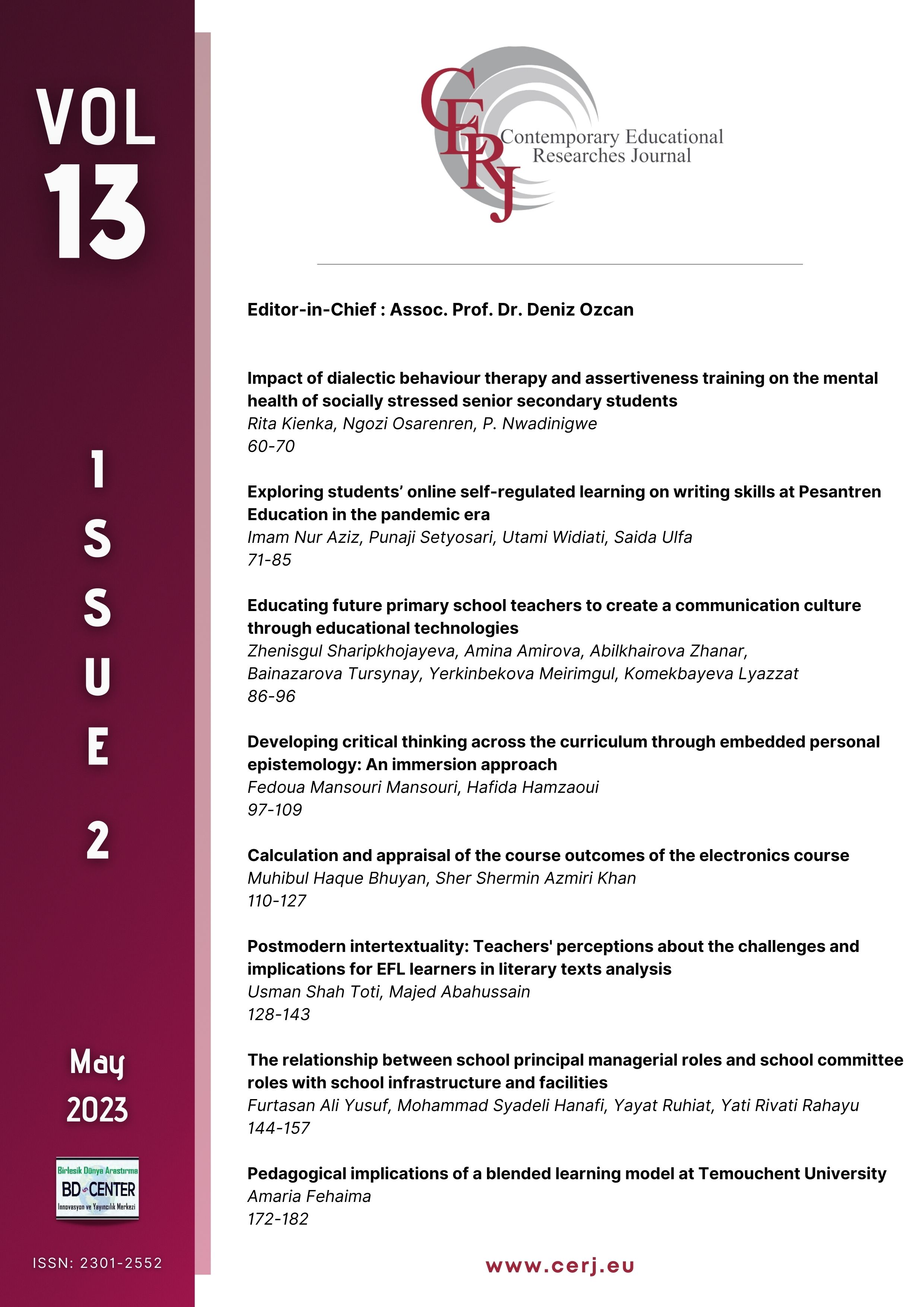Impact of dialectic behaviour therapy and assertiveness training on the mental health of socially stressed senior secondary students
Main Article Content
Abstract
Social stress resulting from substance abuse is a growing global concern. It is linked to mental health with psychosocial challenges faced by a large number of the populace in Nigeria. It is worrisome, especially among students in senior secondary schools in Port-Harcourt Metropolis. Thus, this research examined ‘Dialectic Behaviour Therapy and Assertiveness Training’ in managing psychosocial mental health problems of senior secondary school students who abuse substances in the Port-Harcourt metropolis. Tests before and after the study had a population of 9.650 students and employed quasi-experimental procedures. For the study, a 75-student sample from senior secondary school 2, comprised of 37 males and 38 females, was selected utilizing a multistage selection approach. Car, Relax, Alone, Forget, Family/Friends Trouble, Edinburg Mental well-being scale, and Social Phobia Inventory were the instruments utilized to collect the data. Findings revealed significant differences in the psychosocial problems of adolescents in senior secondary schools because of the interventions, however, dialectic behaviour therapy made more impact in the reduction of adolescents’ social stress though both treatments had a significant impact.
Keywords: Assertiveness training, dialectic behaviour therapy, mental health, social stress, substance abuse
Downloads
Article Details

This work is licensed under a Creative Commons Attribution-NonCommercial-NoDerivatives 4.0 International License.
Authors who publish with this journal agree to the following terms:
- Authors retain copyright and grant the journal right of first publication with the work simultaneously licensed under a Creative Commons Attribution License that allows others to share the work with an acknowledgement of the work's authorship and initial publication in this journal.
- Authors are able to enter into separate, additional contractual arrangements for the non-exclusive distribution of the journal's published version of the work (e.g., post it to an institutional repository or publish it in a book), with an acknowledgement of its initial publication in this journal.
- Authors are permitted and encouraged to post their work online (e.g., in institutional repositories or on their website) prior to and during the submission process, as it can lead to productive exchanges, as well as earlier and greater citation of published work (See The Effect of Open Access).
